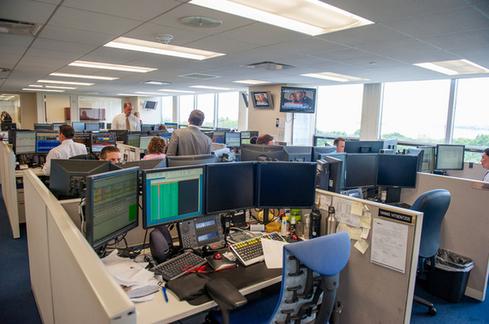05:49 PM
Could Lehman Bros have prevented latest fraud?
Lehman Bros has filed a lawsuit against Marubeni Corp., the Japanese trading giant, responsible for defrauding the New York-based investment bank out of US$352 million through a scam carried out by two rogue employees.This latest incident - just weeks after the Soc Gen scandal - once again throws the spotlight on risk management practices.
The fraud happened when late last year, a unit of the New York-based investment bank issued loans to a fund run by a medical consulting company owned by LTT Bio-Pharma Co, a Tokyo-based biotech company.
The funds were supposed be used to help provide trade financing for hospitals buying medical equipment. They were secured with certificates from Marubeni Corp, one of Japan's biggest trading firms. As the two Marubeni employees carried out the scam, they took the letterhead of Marubeni, forged an official seal from one of the heads of the Tokyo firm and hosted Lehman's reps in their offices, explains Philip Silitschanu, senior analyst at Aite Group.
"They were setting up a loan from Lehman that was supposedly going to the biopharmaceutical company. But essentially they were borrowing the money, and forging the loan to get the money themselves," he explains.
But Silitschanu says the bigger issue here is that this scenario is "the perfect storm in the industry of two very bad phenomena."
He points to the lending crisis and credit crunch, as well as serious loopholes in risk control systems.
"You're starting to see a new hybrid of bad lending/bad borrowing mixed with less than optimal risk control - forming the rogue borrower syndrome . It's a whole new concern," he says.
So how could Lehman have prevented this fraud? Silitschanu suggests it could have been as simple as not trusting two people in a huge firm.
"If they had asked just one more person in the firm, in theory they could have discovered that the whole thing was a sham," he adds.
Silitschanu says incidents such as the one at Lehman Bros and Soc Gen are making risk managers look beyond thir firm's own walls, and worry about the potential risk of rogue traders and rogue borrowers.
Unfortunately, the financial industry is much more reactive than proactive, Silitschanu says. "For a long time risk managers saw their job as dotting the "I"s, crossing the "t"s and setting up systems to follow the rules - that's it.
But since Soc Gen, when all the risk controls were hit, things may have started changing. "We're seeing risk managers say, 'We have to be proactive.'
"They have to start thinking of their role of risk managers as head of the financial safety of the firm, and start thinking like the criminals do," he suggests.
"But we are now noticing a larger number of clients asking more about risk management systems," he adds.Lehman Bros has filed a lawsuit against Marubeni Corp., the Japanese trading giant, responsible for defrauding the New York-based investment bank out of US$352 million through a scam carried out by two rogue employees. Could it have stopped the fraud? Melanie Rodier has worked as a print and broadcast journalist for over 10 years, covering business and finance, general news, and film trade news. Prior to joining Wall Street & Technology in April 2007, Melanie lived in Paris, where she worked for the International Herald ... View Full Bio
























